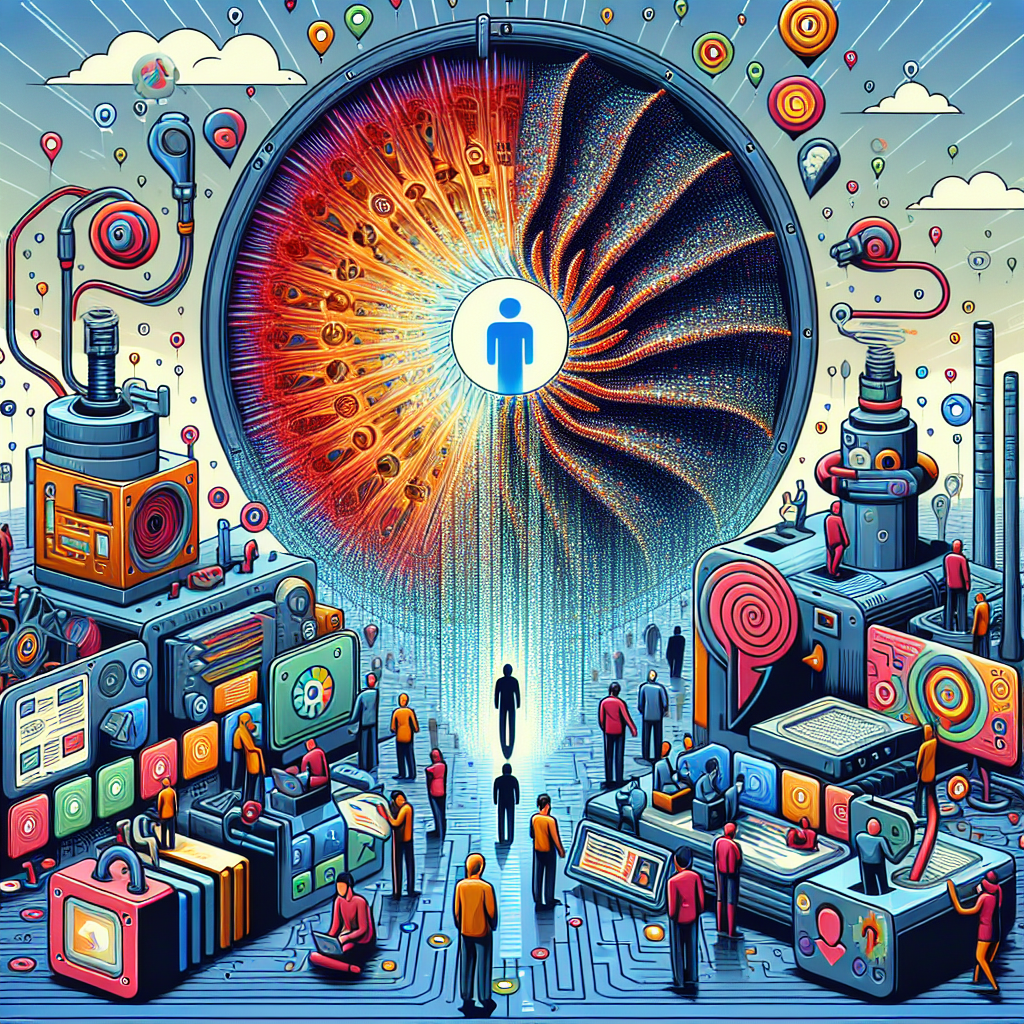In today’s digital age, personalized marketing has become a key strategy for businesses looking to connect with their customers on a more individual level. By tailoring their marketing efforts to the specific needs and preferences of each customer, companies can increase engagement, drive sales, and build brand loyalty. One of the most powerful tools available for creating personalized marketing campaigns is generative AI.
Generative AI refers to a type of artificial intelligence that is capable of creating new content, such as images, videos, or text, based on a set of input data. This technology has the ability to analyze vast amounts of data and generate unique and personalized content that resonates with individual customers. By harnessing the power of generative AI, businesses can create hyper-personalized marketing campaigns that speak directly to the interests and preferences of their target audience.
There are several ways in which generative AI can be used to enhance personalized marketing campaigns. One of the most common applications is in content creation. By using generative AI algorithms, businesses can automatically generate a wide variety of content, such as product descriptions, blog posts, social media posts, and email newsletters. This content can be tailored to the specific interests and preferences of individual customers, making it more engaging and relevant.
Generative AI can also be used to create personalized product recommendations. By analyzing a customer’s past purchases, browsing history, and demographic information, businesses can use generative AI algorithms to generate personalized product recommendations that are tailored to each individual customer. This can help businesses increase sales and improve customer satisfaction by presenting customers with products that are highly relevant to their needs and interests.
Another application of generative AI in personalized marketing campaigns is in the creation of personalized advertising. By analyzing customer data and preferences, businesses can use generative AI algorithms to create personalized ads that are targeted to specific customer segments. These ads can be tailored to each customer’s interests, preferences, and purchasing behavior, making them more likely to resonate with the target audience and drive conversions.
In addition to content creation, product recommendations, and personalized advertising, generative AI can also be used to create personalized email campaigns. By analyzing customer data and behavior, businesses can use generative AI algorithms to generate personalized email content that is tailored to the interests and preferences of individual customers. This can help businesses increase email open rates, click-through rates, and conversions by delivering highly relevant and engaging content to their subscribers.
Overall, generative AI has the potential to revolutionize personalized marketing campaigns by enabling businesses to create highly engaging, relevant, and personalized content that resonates with their target audience. By harnessing the power of generative AI, businesses can increase customer engagement, drive sales, and build brand loyalty in a more efficient and effective way.
FAQs:
Q: How does generative AI differ from other types of artificial intelligence?
A: Generative AI differs from other types of artificial intelligence, such as machine learning and deep learning, in that it is specifically designed to create new content based on a set of input data. While machine learning and deep learning algorithms are typically used to analyze and make predictions based on existing data, generative AI algorithms are focused on generating new and unique content.
Q: How can businesses implement generative AI in their personalized marketing campaigns?
A: Businesses can implement generative AI in their personalized marketing campaigns by working with AI developers or software vendors who specialize in generative AI technology. These experts can help businesses integrate generative AI algorithms into their existing marketing platforms and systems, allowing them to create personalized content, product recommendations, advertising, and email campaigns tailored to the specific needs and preferences of their target audience.
Q: What are some examples of successful personalized marketing campaigns using generative AI?
A: One example of a successful personalized marketing campaign using generative AI is Netflix’s recommendation engine, which uses generative AI algorithms to analyze user data and preferences and generate personalized movie and TV show recommendations for each subscriber. Another example is Amazon’s personalized product recommendations, which use generative AI algorithms to analyze customer data and behavior and generate personalized product suggestions based on each customer’s browsing and purchasing history.
In conclusion, generative AI has the potential to revolutionize personalized marketing campaigns by enabling businesses to create highly engaging, relevant, and personalized content that resonates with their target audience. By harnessing the power of generative AI, businesses can increase customer engagement, drive sales, and build brand loyalty in a more efficient and effective way. By leveraging the capabilities of generative AI, businesses can create personalized marketing campaigns that truly speak to the individual needs and preferences of their customers, leading to greater success and growth in the digital marketplace.

